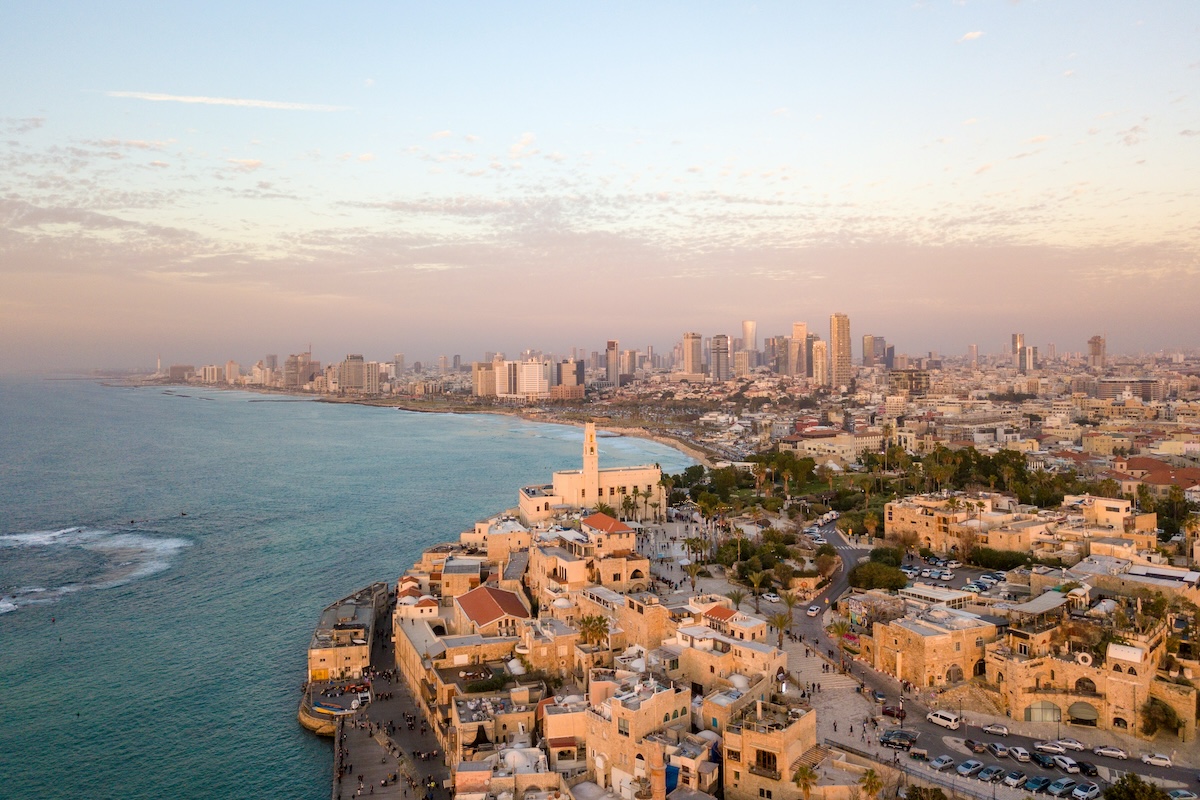
8 Tips for Visiting Tel Aviv
Skip to Section
Traveling to Tel Aviv for the first time? Here are a few tips for making the most of your trip while prioritizing safety, enjoying walking tours, markets, and workshops, and staying in premier, family-friendly hotels for a top-notch experience.
Israel Tourist Visa Requirements
If you’re an ordinary passport holder from the EU, UK, USA, Canada, Australia, New Zealand, or another visa-exempt country, all you need is your passport (valid for at least six months post-departure from Israel) and the new ETA-IL authorization, which grants entry to and travel within Israel. It’s a quick application, and you should receive your approval within a few days—this is valid for up to two years (or until your passport expires, whichever comes first) and allows for stays of up to 90 days per visit. If you’re from a non-visa-exempt country, consult the Israeli Ministry of Foreign Affairs website or liaise with your local embassy.
Getting to Tel Aviv
You’ll want to fly into Ben Gurion International Airport (TLV), the nearest gateway to Tel Aviv. Upon entry into Israel, you will receive a Gate Pass, which is a substitute for a passport stamp and is needed for terminal exit and baggage retrieval. You’ll need to keep this with you the entire time you’re in Israel.
Tel Aviv is a quick 25-minute journey from the airport. There’s a variety of transport options readily available directly from the airport, including trains, minibusses, official taxis, private car services (you’ll want to book this in advance), and rental cars.
Knowing the Difference Between Tel Aviv and Tel Aviv-Yafo
You may hear two place names while planning your trip—here’s the distinction between Tel Aviv and Tel Aviv-Yafo if you’ve found the names confusing. Tel Aviv was established in 1909 as a modern Jewish neighborhood on the outskirts of the port city of Jaffa (Yafo). It grew into a major economic and cultural hub, and in 1950, Tel Aviv and Jaffa merged into a single municipality, officially called Tel Aviv-Yafo. So, Tel Aviv-Yafo encompasses both the modern city of Tel Aviv and the ancient district of Jaffa.
How Long You Should Stay in Tel Aviv
Tourists can stay for up to three months within Israel, after which you’ll need to apply for an extension if you’d like to remain longer. If you’re only taking a short trip, then you could easily see the main sights in Tel Aviv over a few days, thanks to the city’s compact size. Of course a longer trip will give you better immersion and help you be more comfortable venturing beyond tourist hotspots, but if you’re strapped for time, a few days is perfect.
Hotel Options in Tel Aviv
Lodging in central Tel Aviv delivers convenience, cleanliness, and affordability. As this is a pedestrian-friendly city, centrally-located hotels give you better proximity to eateries, gorgeous views, colorful markets, and premier family hotels without needing to worry about cars.
A few hotels to check out:
- The Rothschild 71
- Poli House
- Pixel Dizengoff Square
- Loginn Hotels
If you prefer a seaside view, check out the ColorBox Ben Yehuda or Hotel Lenis.
Navigating Tel Aviv
There are many options for getting around Tel Aviv, including public transport, taxis, bike rentals, scooters, and of course, walking. Pick up a Rav Kav, which is a public transport card you can preload and use on the light rail, bus, and inter-city trains, or if you’d rather explore on your own, consider a bike rental from Tel-O-Fun.
Things to Do in Tel Aviv
Looking for some ways to explore the area, learn about some history and culture, and find your new favorite spots? Try one of these activities:
- Tel Aviv Street Art & Graffiti Tour
- Off the Beaten Track in Tel Aviv: Jaffa Tour
- Walking Tour in Tel Aviv
- Sightseeing Cruises
- Jaffa Highlights Tour
- Hot Air Balloon Ride
- Alternative Shabbat with Artists & TLV Hipsters
What to Eat in Tel Aviv
Tel Aviv’s culinary landscape is a fantastic fusion of traditional and contemporary foods. You’ll find plenty of dishes with hummus, falafel, and pita, and we recommend trying the shakshuka—a favorite breakfast dish of poached eggs in a spicy tomato sauce. If you love street food, try the shwarma or the sabich, a pita stuffed with fried eggplant, hard-boiled eggs, and salad. You can’t go wrong visiting the Carmel Market, which hosts eateries and groceries in addition to clothing, jewelry, electronics, and more. And if you’d like some local insight, guided food tours can offer an immersive experience and introduce you to the city’s diverse eateries—you can do an Israeli home cooking workshop, a guided pub crawl night tour, a culinary market tour, and much more.
Related: 5 Best Vegan Friendly Destinations: India, Israel & More
Over to you! Have you had the chance to travel to Tel Aviv? What advice would you give to fellow travelers? Share your insights with the Frayed Passport community!
Information published on this website and across our networks can change over time. Stories and recommendations reflect the subjective opinions of our writers. You should consult multiple sources to ensure you have the most current, safe, and correct details for your own research and plans.
Frayed Passport is a participant in the Amazon Associates Program, an affiliate advertising program designed to provide a means for sites to earn advertising fees by advertising and linking to Amazon.com. We also may share links to other affiliates and sponsors in articles across our website.




